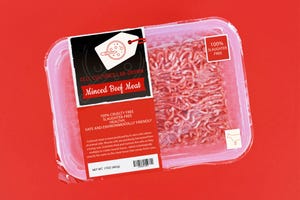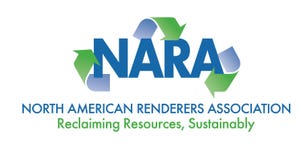Court rules on The Other White Meat trademark
Decision goes against USDA and rules that National Pork Board must cease further payments to NPPC.

The U.S. District Court for the District of Columbia issued a ruling Thursday on a suit challenging the sale of the Pork. The Other White Meat trademarks. The National Pork Producers Council (NPPC) sold the trademarks to the National Pork Board in 2006. The court ruled that the National Pork Board must cease further payments to the NPPC.
The court’s decision followed a motion last January to dismiss the lawsuit filed by the U.S. Department of Agriculture, which authorized the transaction as part of its oversight responsibilities under the 1985 Pork Act. The Pork Act set up the pork checkoff program and established the National Pork Board to administer it.
USDA’s motion argued that the lawsuit, filed by The Humane Society of the United States (HSUS) and two other parties, lacked merit, that it was barred by a six-year statute of limitations, that the plaintiffs failed to establish standing to file the lawsuit or show that they were harmed by the sale of the trademarks and that the agency’s evaluation of the sale of the trademarks showed that they provided significant value to the pork industry.
HSUS argued that the deal funneled money from producers slated for generic commodity promotion through the federally controlled National Pork Board to lobby. Lobbying for legislation is not allowed under checkoff rules.
HSUS and other plaintiffs – which included Iowa Citizens for Community Improvement, an activist group, and a lone Iowa resident who is a member of this group – claimed that the trademarks were sold for an inflated price. NPPC sold the assets – widely regarded as one of the most recognizable marketing brand assets in history – for $35 million.
A USDA-conducted study later valued the trademarks at between $113 million and $132 million. However, the court believed HSUS’s argument, which noted that “the trademarks that include The Other White Meat slogan have been declared to be obsolete and have been retired from active use. So, their value is minimal or, at best, undetermined.”
The ruling offered a mixed bag. The court agreed with the defendants that the plaintiffs’ challenge to the approval of the 2006 purchase agreement itself was untimely and that their claims concerning the approval of any annual payments made in the past were moot.
However, the court concluded that the "decision to continue to approve the annual payments based on the review of the purchase agreement that was undertaken in 2016 was arbitrary and capricious and unmoored from the facts and circumstances before the agency, so it will rule in favor of the plaintiffs on that issue.”
The court held that USDA “is enjoined from approving any future payments.”
NPPC president Ken Maschhoff, an Illinois pork producer, said NPPC is conducting a thorough review of the decision and is evaluating its options.
“We are disappointed that the court partially denied the U.S. Department of Agriculture’s motion to dismiss this frivolous lawsuit -- one that was never based on a legitimate legal challenge to a federally approved transaction but instead was brought by an anti-meat activist group intent on eliminating meat consumption and harming a vast U.S. industry that employs hundreds of thousands of Americans and feeds billions of people at home and abroad,” Maschhoff said.
“NPPC enjoys the strong support of pork producers nationwide. Regardless of the final outcome in this case, we are well positioned to continue fighting for the livelihood of farmers and others in rural America,” he added.
An attorney on the case, Matthew Penzer, special counsel in the HSUS Animal Protection Litigation department, said, “We hope this case signals a future of greater scrutiny and accountable operation of these massively funded government programs."
About the Author(s)
You May Also Like





